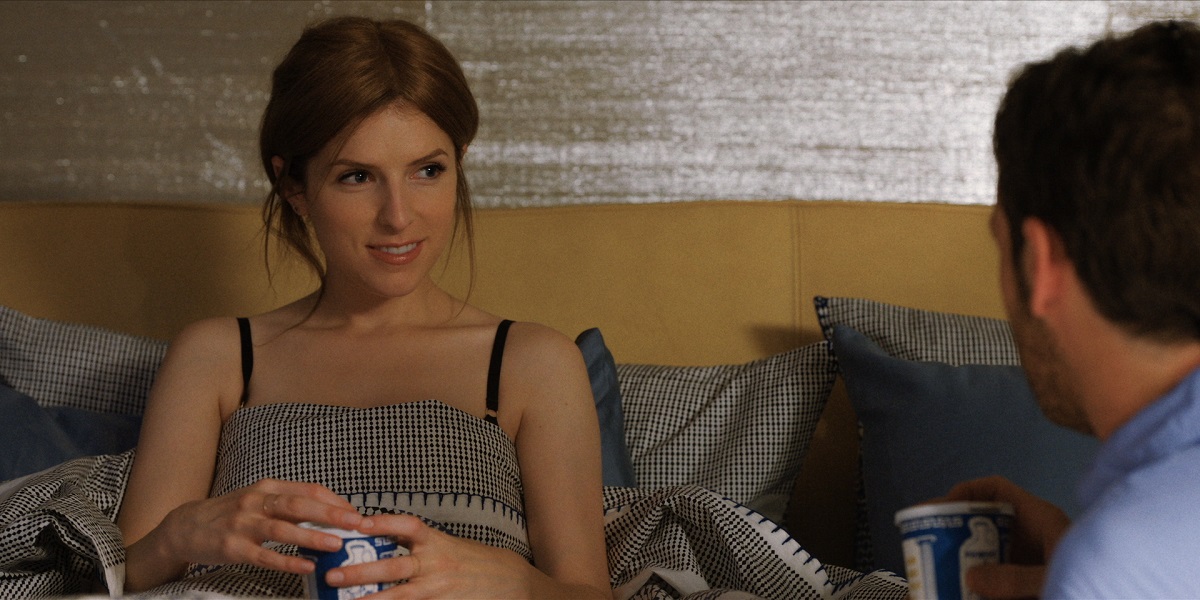It’s inevitable that HBO Max’s “Love Life” will be compared to “Sex and the City.” Like its forebear, this half-hour romantic dramedy from creator Sam Boyd (“In a Relationship”) concerns itself primarily with the romantic and sexual life of its protagonist, with the hope of approaching both with a combination of starry-eyed dreaminess and startling frankness. As with that earlier series, the protagonist in question is played by a winning musical theater veteran with a great head of hair. (It must be said that Anna Kendrick is much better at crying on camera than Sarah Jessica Parker ever was.) Here too there are charismatic friends who offer advice over alcohol; there’s even plenty of voiceover, ready to tie things up in a tidy thematic bow, though in this case, the voice belongs to an omniscient and mellifluous Lesley Manville, rather than our protagonist. But as I made my way through the first season of the flagship of HBO Max’s initial slate, I couldn’t help but wonder: It has sex, and there’s a city, but why is it that “Love Life” feels so devoid of both love and life? (Go ahead and groan; I did as I wrote it.)
Frustratingly, it’s what “Love Life” lacks when stacked against its predecessor that most defines it: Carrie Bradshaw is a person, and Darby Carter is a premise. This anthology series, executive produced by Paul Feig and Kendrick with co-showrunners Boyd and Bridget Bedard (“Transparent”), has an engaging enough conceit: It’s meant to follow one person per season from their first love to their last. For Darby (Kendrick), who moved to New York to “find herself” and then found herself an impossibly cool career and an apartment that’s just impossible, that journey begins with Augie (Jin Ha of “Devs”) and moves on through a predictable stable of guys (and only guys)—there’s the handsome older man, the charismatic user, the hot dum-dum who isn’t boyfriend material, the high school crush with whom she unexpectedly reconnects, the list goes on. Then there are the loves of her life beyond romance: her parents (James LeGros and a predictably excellent Hope Davis), and her friends and roommates Sara (series standout Zoë Chao), Mallory (Sasha Compère, appallingly underutilized), and Sara’s boyfriend Jim (Peter Vack). And that’s about it. She has a brother, and the occasional co-worker, and for one far too brief stretch a therapist, but Darby’s life is unavoidably defined by her romances in the eyes of both the character and the writers. In both cases, it’s a mistake that’s deeply damaging.

“Love Life” is far from the first story to follow a person who has centered her own life on the pursuit of romantic love, nor is it the first to acknowledge that she’s doing so, to her detriment. (For a much, much better example, see The CW’s “Crazy Ex-Girlfriend,” which is also considerably filthier—quite a feat, considering the network in question.) “Love Life” makes the mistake of doing the same, and that’s apparent from the first hour. That it recovers at all is due mainly to Kendrick, an immensely engaging performer who not only convincingly ages Darby year by year but who also manages to make up for the show’s total disinterest in her life outside her romantic pairings—I promise you, Kendrick is far more intrigued by Darby’s career in art and antiquities than Boyd and Bedard ever were. It’s also helpful that she could evidently conjure chemistry with a paper bag, as her scenes with all the men in her life attest, particularly those with John Gallagher, Jr. (though Ha and Scoot McNairy also stand out).
But even Kendrick’s considerable talent and skill can’t make up for the show’s overall flimsiness. It’s a real problem that “Love Life” has more in common with Amazon’s anthology “Modern Love” than it does with shows like “Girls,” Hulu’s “High Fidelity, “Crazy Ex-Girlfriend,” or “Jane the Virgin.” There’s precious little that connects these romances to each other, save Darby and New York City. If that sounds backward, if it seems like there should be no need to link them because they’re all part of Darby’s story, then congratulations, you have arrived at precisely the problem with “Love Life.” Despite Kendrick’s best efforts, it’s hard to shake the feeling that this is simply a collection of short stories in which the same person happens to figure, without any connective tissue. With one exception, it’s difficult to see how she learns, grows, and is scarred by these pairings, but nor is this a story of how she’s doomed to repeat old patterns over and over again. She’s just there, and the show happens to her.
The exception, a two-part story split down the middle by the requisite protagonist-goes-to-therapy episode, hints at what a show that cared more about Darby than the conceit could offer. “Magnus Lund Pt. 1” and “Magnus Lund Pt. 2” track one of the longer and more substantial relationships in Darby’s life; rather than conversations about how long she should wait to hear from a guy before texting or whether it’s right to lie to a one-night-stand to avoid rejecting them, the discussions here are about debt, honesty, emotional manipulation, loneliness, cruelty, and the difficulty of acknowledging that something has died. The subjects allow, mercifully, for more substantial scenes with her friends—more on that in just a minute—but more importantly, it gives Darby an internal struggle, rather than a track to follow. It’s a messier, thornier, and infinitely more interesting series. A pity it only lasts two episodes.

Those successes underline the most apparent symptom of the sickness at the heart of “Love Life,” and the element with which the “Sex and the City” comparison begins to fall apart: If Darby isn’t a rich character, then the people in her life are little more than sketches, and that’s a huge problem, especially with her friends. As with our heroine, it’s possible to catch glimpses of what might have been: an episode centered on her mother suddenly crystallizes when Davis winds up on her own briefly, a largely wordless sequence that suddenly opens the character up in a new way and draws a line from mother to daughter; while Mallory remains a non-entity for most of the series, Sara manages to be compelling, both because she occasionally gets a scene or two to herself and through the sheer force of Chao’s personality. No one would argue that “Sex and the City” was an insightful work of towering genius in each and every episode, but there’s a reason people defined themselves as a “Samantha” or a “Charlotte” or a “Miranda” for years. “Sex and the City” may have been Carrie’s show, but those friendships were more important than the men ever were. They weren’t simply faces at whom the protagonist could talk.
Not every series needs to be defined by its friendships. But if “Love Life” wants to succeed, it’s got to do one of two things in future, and preferably both: It can make us care about the protagonist so much that we don’t need her to have a full life populated by developed characters, or it can bother to care about those characters, too. In doing neither, it’s as doomed as one of Darby’s relationships—and will probably last about as long, too.
Eight episodes screened for review.












